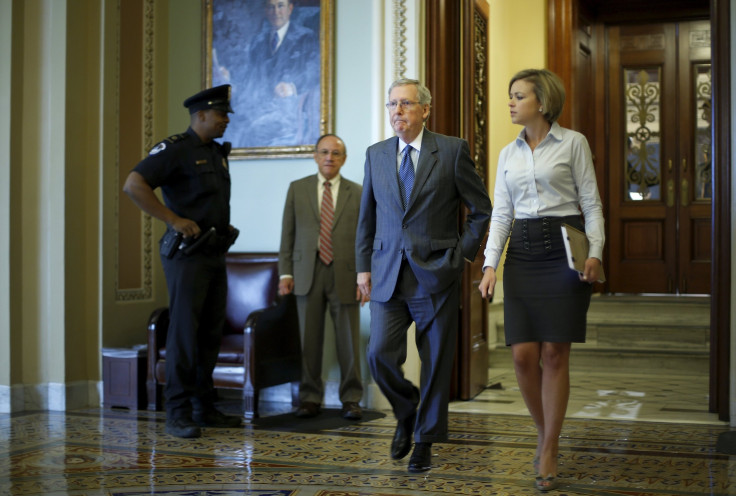Barack Obama Trade Agenda Overcomes Opposition From Elizabeth Warren, Other Democrats

WASHINGTON -- Barack Obama won a battle Thursday in his trade war as legislation to give him larger authority to negotiate international trade deals cleared a procedural hurdle in the Senate. Just two days earlier, Democrats voted against giving their own president more flexibility, but several Democrats switched positions after Republican leadership allowed votes on two additional compromise measures, including legislation aimed at preventing currency manipulation. Sen. Elizabeth Warren, D-Mass., who has been an outspoken opponent of the deal that Obama is pursuing, voted no.
The bill received 65 votes, more than the needed 60 votes to clear “cloture,” the process of avoiding a filibuster. Only 33 voted in opposition, with two senators absent. On Tuesday, a vote on the same motion had failed 52-45, with Sen. Tom Carper, D-Del., as the only Democrat to support it.
Clearing the first procedural hurdle is a strong sign that the legislation will have an easy time moving through the next several votes. The harder battle could be in the House, where Speaker John Boehner, R-Ohio, will struggle to find the needed votes, as both Democrats and conservative Republicans are likely to be in opposition.
Known as Trade Promotion Authority, the bill would place limits on changes Congress can make to trade agreements the administration strikes. The legislation is chiefly focused on the Trans-Pacific Partnership, a deal currently being negotiated among the United States, Australia, some South American countries and several Asian nations that would allow trade to move more freely between the members.
If Trade Promotion Authority, known as TPA, becomes law, Congress would have less specific review powers over the deal that Obama strikes. Congress would be able only to a give the international pact an up-or-down vote and would not be able to amend it. Proponents of the law say this would allow Obama to strike a better deal and take into account the needed compromises to reach a successful arrangement.
Much of the opposition to TPA came from Democrats like Warren who worry that a final Trans-Pacific deal will damage low-wage workers in the United States and allow companies to ship jobs overseas. They argue that American companies will have an easier time more cheaply producing goods overseas and then importing them into the U.S. without tariffs. Obama told Yahoo last week that Warren was "absolutely wrong."
Democrats are also concerned because the TPA legislation would remain in place for any trade deal struck in the next three years and could be renewed for another three years with a simple majority vote in the Senate -- meaning the minority party wouldn’t have the power to block it. The concern is that if a Republican wins the White House in 2016 and the party holds on to both chambers of commerce, Democrats would have no power to block or amend the legislation.
© Copyright IBTimes 2024. All rights reserved.












